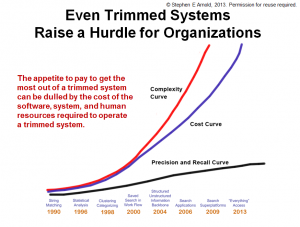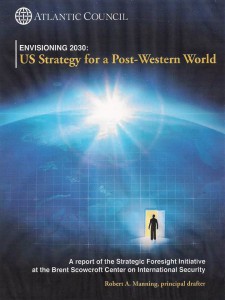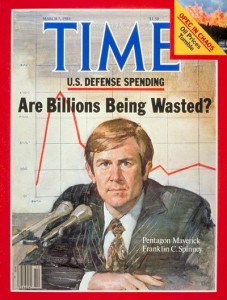Reflections on Alternative Command & Control and Four Transformation Forcing Concepts
#OSE Open Source Everything, Advanced Cyber/IO, All Reflections & Story Boards, Communities of Practice, Cultural Intelligence, Earth Intelligence, Key Players, Officers Call, Peace Intelligence, Policies, Strategy, Threats
I have been reflecting on the past twenty years, and the remarkable resistence of the US Intelligence Community, seemingly impervious to all manner of reform recommendations, be they presidential, congressional, or public. Reform is not transformation. This from Dr. Russell Ackoff, a pioneer in systems thinking and reflexive practice:
Reformations and transformations are not the same thing. Reformations are concerned with changing the means systems employ to pursue their objectives. Transformations involve changes in the objectives they pursue.
And now this from Ada Bozeman:
(There is a need) to recognize that just as the essence of knowledge is not as split up into academic disciplines as it is in our academic universe, so can intelligence not be set apart from statecraft and society, or subdivided into elements…such as analysis and estimates, counterintelligence, clandestine collection, covert action, and so forth. Rather … intelligence is a scheme of things entire. (Bozeman 1998: 177):[1]
The recent NATO Innovation Hub initiative in leveraging social media is a tiny but potentially potent transformation starting point. It reflects clarity, diversity, and integrity. After an open brainstorming session that identified 32 opportunity areas, enablers, and concerns, the team nurturing the NATO Innovation Hub settled on three areas for focus where concept papers will be developed:
-‐ Education and Training through New Media
-‐ Alternative Command and Control
-‐ Social Media Users Training
As one of the early invited participants contributing to the process, I offered the below comments toward the first draft of the concept paper for Alternative Command and Control, and am now adding to that a section on four forcing concepts or functions for transforming strategy, policy, acquisition, and operations via the alternative command and control concept.
Penguin: General James “Mad Dog” Mattis, USMC, on Why “Too Busy to Read” Is a Moron’s Cop-Out on Leadership Responsibility
04 Education, Ethics, History, Military, Officers Call, Strategy, Teaching, Threats
A model for all of us.
General James ‘Mad Dog' Mattis Email About Being ‘Too Busy To Read' Is A Must-Read
In the run up to Marine Gen. James Mattis‘ deployment to Iraq in 2004, a colleague wrote to him asking about the “importance of reading and military history for officers,” many of whom found themselves “too busy to read.”His response went viral over email.
Security Blog “Strife” out of Kings College in London recently published Mattis' words with a short description from the person who found it in her email.

Their title for the post:
With Rifle and Bibliography: General Mattis on Professional Reading
[Dear, “Bill”]
The problem with being too busy to read is that you learn by experience (or by your men’s experience), i.e. the hard way. By reading, you learn through others’ experiences, generally a better way to do business, especially in our line of work where the consequences of incompetence are so final for young men.
Thanks to my reading, I have never been caught flat-footed by any situation, never at a loss for how any problem has been addressed (successfully or unsuccessfully) before. It doesn’t give me all the answers, but it lights what is often a dark path ahead.
Stephen E. Arnold: A Fresh Look at Big Data & Big Data (-) Human Factor (+) Transformation (+) RECAP
Access, Advanced Cyber/IO, Architecture, Collective Intelligence, Communities of Practice, Cultural Intelligence, Design, Earth Intelligence, Ethics, Key Players, Peace Intelligence, Policies, Strategy, Threats
May 8, 2013
Next week I am doing an invited talk in London. My subject is search and Big Data. I will be digging into this notion in this month’s Honk newsletter and adding some business intelligence related comments at an Information Today conference in New York later this month. (I have chopped the number of talks I am giving this year because at my age air travel and the number of 20 somethings at certain programs makes me jumpy.)
I want to highlight one point in my upcoming London talk; namely, the financial challenge which companies face when they embrace Big Data and then want to search the information in the system and search the Big Data system’s outputs.

Notice that precision and recall has not improved significantly over the last 30 years. I anticipate that many search vendors will tell me that their systems deliver excellent precision and recall. I am not convinced. The data which I have reviewed show that over a period of 10 years most systems hit the 80 to 85 percent precision and recall level for content which is about a topic. Content collections composed of scientific, technical, and medical information where the terminology is reasonably constrained can do better. I have seen scores above 90 percent. However, for general collections, precision and recall has not been improving relative to the advances in other disciplines; for example, converting structured data outputs to fancy graphics.
I don’t want to squabble about precision and recall. The main point is that when an organization mashes Big Data with search, two curves must be considered. The first is the complexity curve. The idea is that search is a reasonably difficult system to implement in an effective manner. The addition of a Big Data system adds another complex task. When two complex tasks are undertaken at the same time, the costs go up.
Moises Naim: Mafia States Robert Steele Graphic
Communities of Practice, Cultural Intelligence, Ineptitude, IO Impotency, Key Players, Offbeat Fun, Policies, Strategy, Threats
Mafia States:Organized Crime Takes Office
By Moisés Naím
Foreign Affairs, May/June 2012
SUMMARY: Around the world, criminal organizations and governments are fusing to an unprecedented degree, blurring the distinction between national interests and what suits the gangsters. Mafia states enjoy the unhealthy advantages of their hybrid status: they're as nimble as gangs and as well protected as governments, and thus more dangerous than either.
MOISES NAIM is a Senior Associate at the Carnegie Endowment for International Peace and the author of Illicit: How Smugglers, Traffickers, and Copycats Are Hijacking the Global Economy.
The global economic crisis has been a boon for transnational criminals. Thanks to the weak economy, cash-rich criminal organizations can acquire financially distressed but potentially valuable companies at bargain prices. Fiscal austerity is forcing governments everywhere to cut the budgets of law enforcement agencies and court systems. Millions of people have been laid off and are thus more easily tempted to break the law. Large numbers of unemployed experts in finance, accounting, information technology, law, and logistics have boosted the supply of world-class talent available to criminal cartels. Meanwhile, philanthropists all over the world have curtailed their giving, creating funding shortfalls in the arts, education, health care, and other areas, which criminals are all too happy to fill in exchange for political access, social legitimacy, and popular support. International criminals could hardly ask for a more favorable business environment. Their activities are typically high margin and cash-based, which means they often enjoy a high degree of liquidity — not a bad position to be in during a global credit crunch.
But emboldened adversaries and dwindling resources are not the only problems confronting police departments, prosecutors, and judges. In recent years, a new threat has emerged: the mafia state. Across the globe, criminals have penetrated governments to an unprecedented degree. The reverse has also happened: rather than stamping out powerful gangs, some governments have instead taken over their illegal operations. In mafia states, government officials enrich themselves and their families and friends while exploiting the money, muscle, political influence, and global connections of criminal syndicates to cement and expand their own power. Indeed, top positions in some of the world's most profitable illicit enterprises are no longer filled only by professional criminals; they now include senior government officials, legislators, spy chiefs, heads of police departments, military officers, and, in some extreme cases, even heads of state or their family members.
Read full article (registration required).
Measuring the Mafia-State Menace: Are Government-Backed Gangs a Grave New Threat?
Foreign Affairs,July/August 2012
Read rebuttal commentary (Peter Andreas) and response (Moises Naim) — no registration required.
Continue reading “Moises Naim: Mafia States Robert Steele Graphic”
Reflections on Reform 2.3 Numbers for 30% DoD Cut over 2-4 Years
Advanced Cyber/IO, All Reflections & Story Boards, Budgets & Funding, Ethics, Government, Officers Call, Policies, Serious Games, Strategy, Threats, True Cost
It never occurred to me, when I lost the first bureaucratic battle on Open Source Intelligence (OSINT) in 1992, that my innate sense of integrity [do the right thing] would lead me to resign from the Marine Corps civil service in 1993 as a very young GM-14, and spend not five, not ten, but twenty years wandering in the wilderness helping over 66 governments and over 7,500 mid-career officers get a grip on sources and methods the traditional secret services refused to consider and the traditional consumers of intelligence did not know how to do. Of all my student bodies, the USA was the worst, remaining ignorant at the leadership level, helpless at the follower level–butts in seats, no brain required. Hence, as we approach a historic turning point, the possibility that we might have a Secretary of State and a Secretary of Defense that can actually get a grip on reality together, I thought it might be useful to offer up three things I have learned during my 20-year walk-about:
Continue reading “Reflections on Reform 2.3 Numbers for 30% DoD Cut over 2-4 Years”
Reference: Atlantic Council Envisioning 2030: US Strategy for a Post-Western World
02 China, 05 Iran, 06 Russia, Collective Intelligence, Commercial Intelligence, Communities of Practice, Earth Intelligence, Ethics, IO Impotency, Officers Call, Peace Intelligence, Strategy, White Papers
Document: Envisioning 2030: US Strategy for a Post-Western World (Atlantic Council, 10 December 2030)
Executive Summary
Agree that we are at a potentially historic transition point. However, the Atlantic Council lacks the strategic analytic model to make the most of its otherwise formidable brain trust. Agree on the need for a new mental map, but they chose the wrong map. See the HourGlass Strategy as an alternative (also below the line).
The report misses multiple big possibilities including the eight tribes, M4IS2, and OSE.
1. Frame second-term policies from a more strategic and long-term perspective, recognizing the magnitude of the moment and the likelihood that the United States’ actions now will have generational consequences.
Absolutely. Understanding emergent public governance trends rooted in true cost and whole system analytics, which harness the distributed intelligence of the five billion poor, not in this report.
2. Continue to emphasize what has been called “nation-building at home” as the first foreign policy priority, without neglecting its global context.
Left unsaid is the need to establish a plan, coincident with the creation of a 450-ship Navy, a long-haul Air Force, and an air-liftable Army, to close most of our military bases around the world, and bring all of our troops – and their purchasing power – home.


